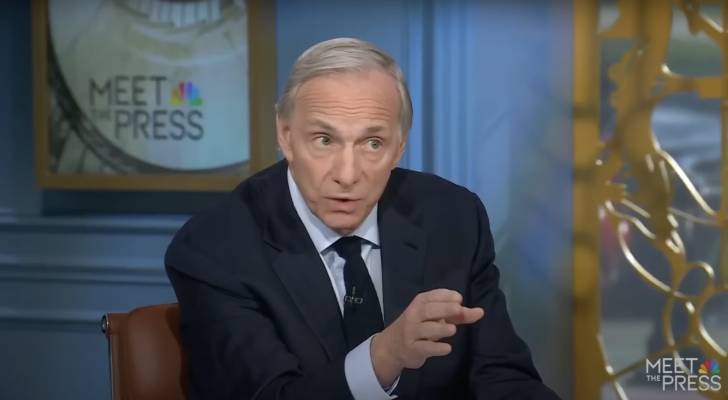The founder of Bridgewater Associates, one of the world’s largest hedge funds, is voicing concern that President Donald Trump’s economic agenda could lead to “something worse than a recession.”
“Right now, we are at a decision-making point and very close to a recession,” billionaire investor Ray Dalio told NBC’s Meet the Press. “And I’m worried about something worse than a recession if this isn’t handled well.”
A recession is typically defined as two consecutive quarters of negative GDP growth. A much more “profound” change would be a breakdown of the current monetary order. (It’s worth pointing out that Dalio correctly predicted the 2008 financial crisis.)
Trump has triggered global economic chaos with his on-again, off-again tariffs, most recently declaring a 90-day pause on ‘reciprocal’ tariffs — except for China.
In that case, tariffs have increased to 145%. With markets in turmoil and consumer confidence plummeting, more economists believe a recession is likely.
But Dalio believes Americans could be facing more than a recession. Tariffs, combined with a high level of debt and a rising superpower challenging the existing superpower, could lead to “profound changes” in the world order.
“Such times are very much like the 1930s,” he told NBC.
The end of the Second World War ushered in a new monetary and geopolitical world order. But history tends to repeat itself.
“These go in cycles that can be measured, and I worry about the breakdown of that kind of order, particularly since it doesn’t need to happen,” he told NBC, adding that there are better ways to restructure debt.
Whether tariffs are implemented in a “stable” way or a “chaotic and disruptive way” can make “all the difference in the world,” he said. But so far, the tariffs have been akin to “throwing rocks into the production system.” In other words, highly disruptive.
“Right now we’re at a juncture,” he told NBC. He believes Congress needs to get the budget deficit down to 3% of GDP while managing trade deficits “in the right way.” If not, there will be a supply-demand issue for debt and “the results of that will be worse than a normal recession.”



